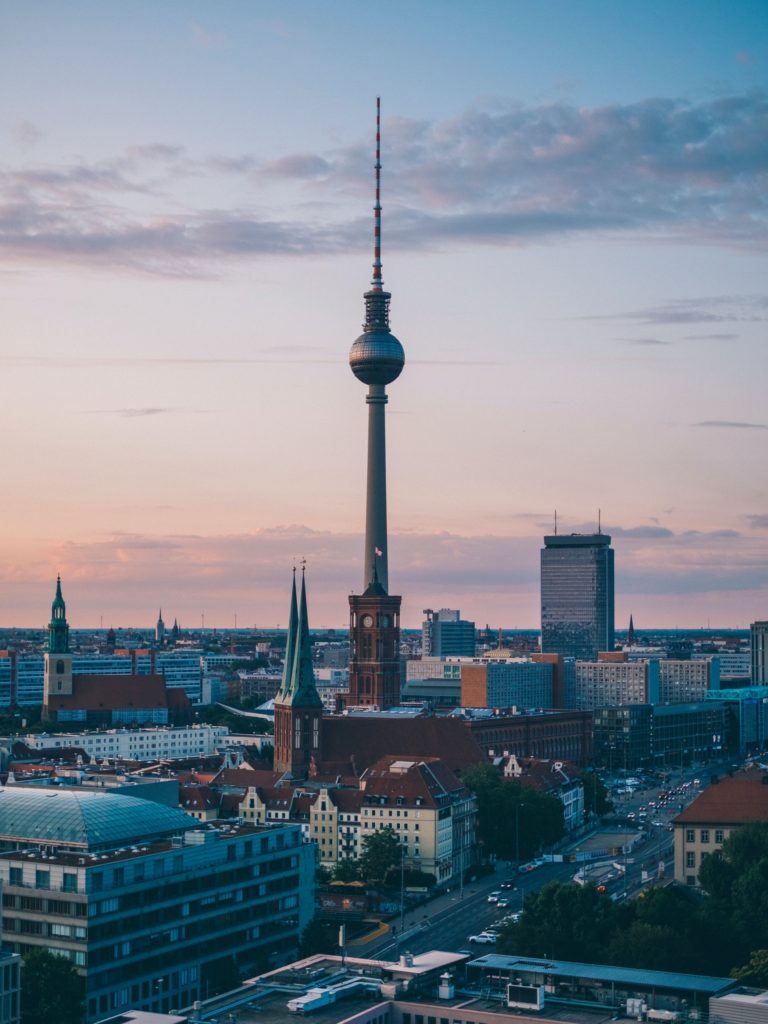Untranslatable German Words: Multikulti Posted by Sten on Aug 5, 2021 in Culture, Politics, Vocabulary
In Germany, you might hear the term Multikulti sometimes. It is often used positively, but sometimes there is a rather disgruntled undertone as well. It is widely used! But what does it mean? And is there a proper English translation for it?
What does Multikulti mean?
Multikulti is a shorthand of Multikulturalismus (m, multiculturalism). It’s the idea that a Gesellschaft (f, society) is diverse, with many people from different countries, with different Muttersprachen (f, mother tongues), Traditionen (f, traditions) and Religionen (f, religions). Some see that as enhancing a Gesellschaft, while others think it can harm it. So some use it as a derogatory term, while others use it with positivity!
The term was popularized by the Green Party in the 1970s and 80s, when Germany received many migrants from different cultures.
These days, the origin of the term is not that important anymore. The meaning of the term watered down a bit, and basically refers to kulturelle Vielfalt (cultural diversity). Often, it now simply means that something is diverse, shaped by various cultural backgrounds. So that can be a Flohmarkt (flea market), a Party (party) or your German class!
What would be a literal translation of Multikulti?
Multicultural or multiculturalism. It is more often used now as an adjective than a noun. However, even with that quite fitting translation, it doesn’t quite cover the German term completely.
How would you use Multikulti in a sentence?
In a sentence, it is used as either an adjective or a noun:
Der Markt hat mir sehr gefallen. Er war echt multikulti!
(I really liked the market. It was really multicultural!)
Dieser ganze Multikulti… Ich verstehe einfach nicht, warum das so positiv gesehen wird!
(All this multiculturalism… I simply don’t understand, why it is seen so positively!)
Berlin ist total multikulti!
(Berlin is absolutely multicultural!)
What is the nearest English equivalent of Multikulti?
The best way to have an equivalent in English is to create a compound noun, I think. So, perhaps multicultural mix translates it quite well. Or simply the term diverse. As far as I am aware, the word “multicultural” is not used like this in English. I might be wrong, though! If you are familiar with this term used in everyday conversation to refer to events, cities or other things where people come together, I’d love to know.
Have you heard of this term before? How have you used it or would you use it? Is there an equivalent in your language? Please let me know in the comments below!

Build vocabulary, practice pronunciation, and more with Transparent Language Online. Available anytime, anywhere, on any device.






Comments:
Rob Prichard:
I have never heard this term before. Here in NYC, the closest thing I can think of that we have to “multikulti” is cosmopolitan.
I can think of 2 other words that don’t have English translations, schadenfreude and gemeinheit. English speakers have appropriated schadenfreude. We use it. It shows up in spellcheck. The closest term I can come up with for gemeinheit is bummer. Which is 60s hippie slang that I believe evolved from the phrase “bummed out” meaning unhappy. So a bummer is an unhappiness which I believe is as close as we get to the irritability of gemeinheit.
Thank you for your blog!
Sten:
@Rob Prichard Hi Rob!
Thanks for your comment. We’ve written about Schadenfreude before.
But I had no idea that Gemeinheit is a word that can’t be translated! Thanks for your suggestion with “Bummer”, though to me, that doesn’t really quite capture the meanness of what’s going on.
I’ll gather my thoughts for the blog post about it. Be sure to subscribe to our email newsletter so you won’t miss a blog, and I’ll (at the latest) see you in that one 🙂
janice barriault:
multiculturalism has been Canadian thing for many years… probably since early 70’s?? i remember my country being described in Social Studies class as ‘a melting pot’. multikulti is my word of the day now!! and like Germany,, most embrace it, most in canada are result of multiculti exchanges, lol. but there are of course pockets of discontent
Sten:
@janice barriault Yeah, the melting pot idea is quite apt, as well! 🙂